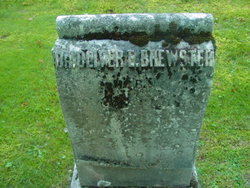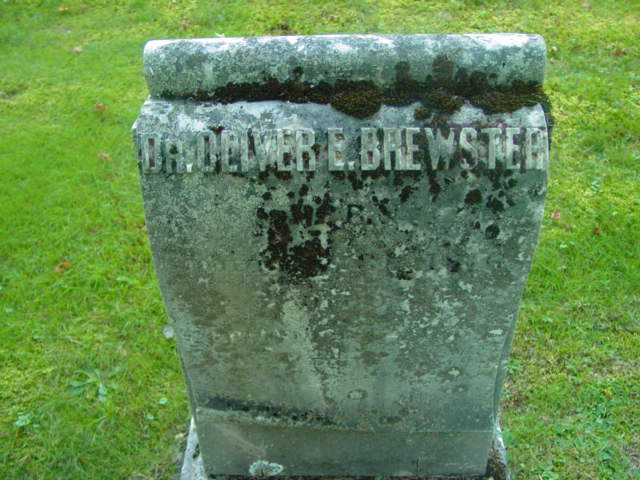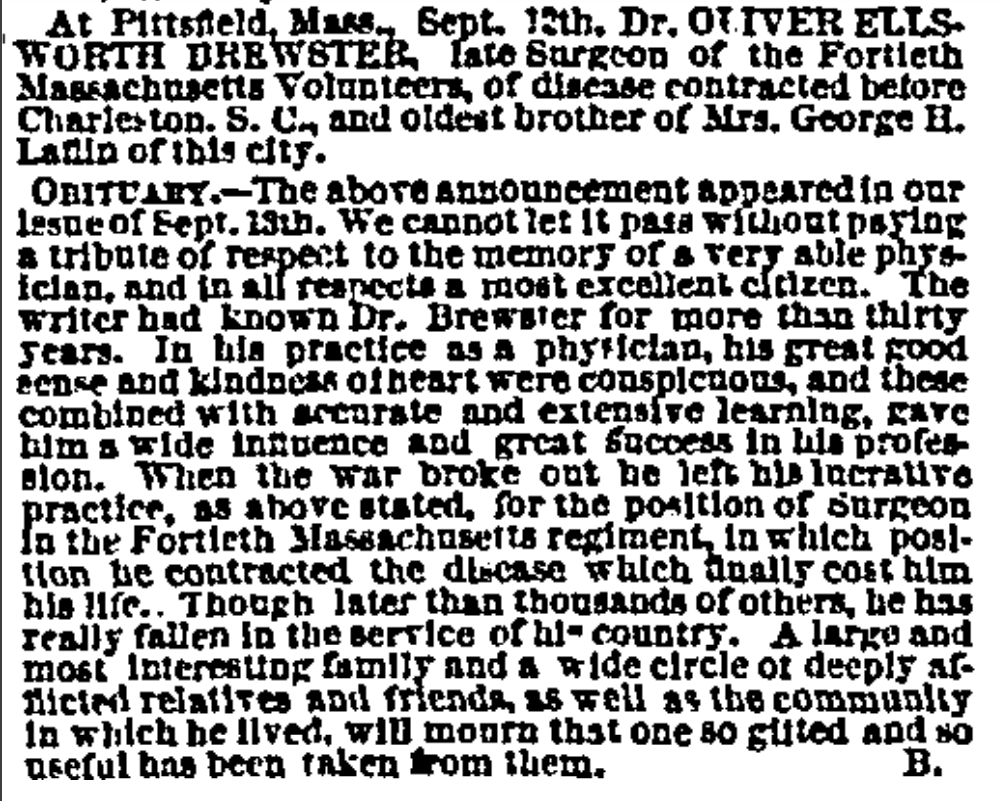Having studied medicine with his father, and attended the requisite courses of lectures at the Berkshire Medical College, he received his medical degree in November, 1839. He commenced the practice of medicine with his father in Pittsfield, Massachusetts.
He was married to Miss Clarissa A. Allen in 1841.
He received, August 20, 1861, a commission from the Surgeon General of Massachusetts, to appoint such surgeons as he deemed competent to examine recruits for the government service in Western Massachusetts, which position he held until August 20, 1862, when he was commissioned Surgeon of the 40th Regiment Massachusetts Volunteers.
At the beginning of the war, he earnestly desired to serve his country, and it was his patriotism which induced him to leave a practice of over twenty years, lucrative and constantly increasing, and all the comforts of his delightful home, for the trials, hardships and dangers of camp life. He carried to the army his habits of purity, simplicity and unostentatiousness, and professionally his habits of close observation, severe induction, and firmness of opinion. And they seemed to be very much in his way. His simplicity was in opposition to that haughtiness, and often insolence of demeanor thought necessary by many of the army officers, and the remark was made by an officer in the regiment, that if he would swear some he would sooner get his requisitions filled. But throughout his connection with the army his purity and modesty never forsook him, and when he left the army it was with the consciousness that he had stood fast by his principles, rebuking profanity in both private and officer, and never having spoken a word which could not have been uttered in his own home.
But his habits, professionally, seemed ill adapted to the necessities of the camp. It had been his custom to scrutinize carefully all the symptoms, and investigate the history of each case, and weigh all his facts before reaching a conclusion. But he was often obliged to curtail his investigations, and reach a conclusion before he had fully satisfied himself. And often the closeness of his questioning caused the men to feel that they were somehow on trial, and at first his connection with the regiment was unpleasant, and he was unpopular.
But after a time all this was changed. Both officers and men soon saw that he was a conscientious, pains-taking and efficient officer; that he was guided by stern principle; that every sick man would have his case thoroughly investigated; that as far as it was in his power every want would be supplied, and that every malingerer would be detected and punished.
He was fearless, and neither afraid to utter his convictions nor defend them; and often when his opinions came in conflict with those of superior officers he never failed to stand by his own judgment, and those with whom he differed would often acknowledge him right.
In time he had the confidence of all who know him, and was most highly esteemed when he left the army. An instance of this is the fact that one of the line officers who for the first few weeks was bitterly opposed to him, afterwards fell sick and was most tenderly cared for by Dr. Brewster. He was finally discharged, and when the doctor visited Boston on his return, he was sought out and cordially embraced by this afore-time enemy.
His habits were active, and in his whole army life he was, unless sick, always present at the morning call.
When on Morris Island, S. C, he was attacked with chronic diarrhea, and it was soon apparent that he must resign his position or die. He was consequently honorably discharged October 3, 1863.
As soon as his health was sufficiently restored he resumed the duties of his profession in Pittsfield.
He had a warm heart, but oftentimes his blunt expressions and plain dealing were offensive. He hated pretense and sham, and scorned to gain reputation in any other than a perfectly legitimate way. He was very social in his nature, and it was his great delight to be in the society of his medical brethren. He loved the Berkshire Medical Society, and was rarely absent from its meetings. He was reserved in his utterances, but always when he spoke it was with dignity and wisdom. He was, at the time of his death, President of the Berkshire Medical Society.
Having studied medicine with his father, and attended the requisite courses of lectures at the Berkshire Medical College, he received his medical degree in November, 1839. He commenced the practice of medicine with his father in Pittsfield, Massachusetts.
He was married to Miss Clarissa A. Allen in 1841.
He received, August 20, 1861, a commission from the Surgeon General of Massachusetts, to appoint such surgeons as he deemed competent to examine recruits for the government service in Western Massachusetts, which position he held until August 20, 1862, when he was commissioned Surgeon of the 40th Regiment Massachusetts Volunteers.
At the beginning of the war, he earnestly desired to serve his country, and it was his patriotism which induced him to leave a practice of over twenty years, lucrative and constantly increasing, and all the comforts of his delightful home, for the trials, hardships and dangers of camp life. He carried to the army his habits of purity, simplicity and unostentatiousness, and professionally his habits of close observation, severe induction, and firmness of opinion. And they seemed to be very much in his way. His simplicity was in opposition to that haughtiness, and often insolence of demeanor thought necessary by many of the army officers, and the remark was made by an officer in the regiment, that if he would swear some he would sooner get his requisitions filled. But throughout his connection with the army his purity and modesty never forsook him, and when he left the army it was with the consciousness that he had stood fast by his principles, rebuking profanity in both private and officer, and never having spoken a word which could not have been uttered in his own home.
But his habits, professionally, seemed ill adapted to the necessities of the camp. It had been his custom to scrutinize carefully all the symptoms, and investigate the history of each case, and weigh all his facts before reaching a conclusion. But he was often obliged to curtail his investigations, and reach a conclusion before he had fully satisfied himself. And often the closeness of his questioning caused the men to feel that they were somehow on trial, and at first his connection with the regiment was unpleasant, and he was unpopular.
But after a time all this was changed. Both officers and men soon saw that he was a conscientious, pains-taking and efficient officer; that he was guided by stern principle; that every sick man would have his case thoroughly investigated; that as far as it was in his power every want would be supplied, and that every malingerer would be detected and punished.
He was fearless, and neither afraid to utter his convictions nor defend them; and often when his opinions came in conflict with those of superior officers he never failed to stand by his own judgment, and those with whom he differed would often acknowledge him right.
In time he had the confidence of all who know him, and was most highly esteemed when he left the army. An instance of this is the fact that one of the line officers who for the first few weeks was bitterly opposed to him, afterwards fell sick and was most tenderly cared for by Dr. Brewster. He was finally discharged, and when the doctor visited Boston on his return, he was sought out and cordially embraced by this afore-time enemy.
His habits were active, and in his whole army life he was, unless sick, always present at the morning call.
When on Morris Island, S. C, he was attacked with chronic diarrhea, and it was soon apparent that he must resign his position or die. He was consequently honorably discharged October 3, 1863.
As soon as his health was sufficiently restored he resumed the duties of his profession in Pittsfield.
He had a warm heart, but oftentimes his blunt expressions and plain dealing were offensive. He hated pretense and sham, and scorned to gain reputation in any other than a perfectly legitimate way. He was very social in his nature, and it was his great delight to be in the society of his medical brethren. He loved the Berkshire Medical Society, and was rarely absent from its meetings. He was reserved in his utterances, but always when he spoke it was with dignity and wisdom. He was, at the time of his death, President of the Berkshire Medical Society.
Family Members
Advertisement
Advertisement





















